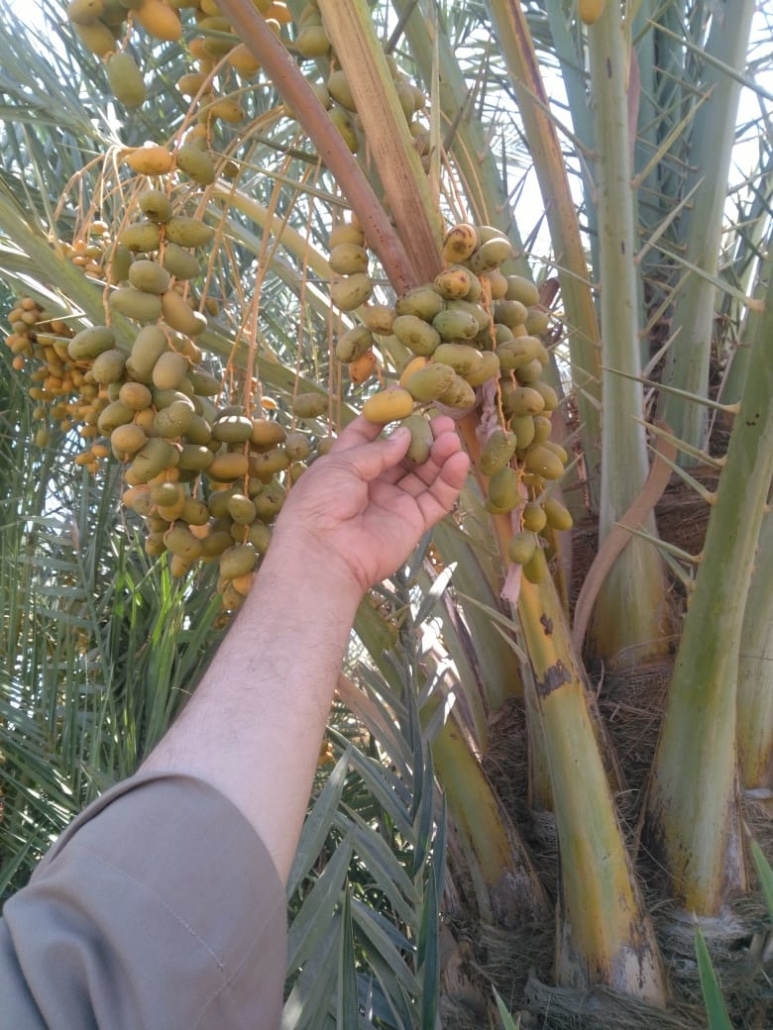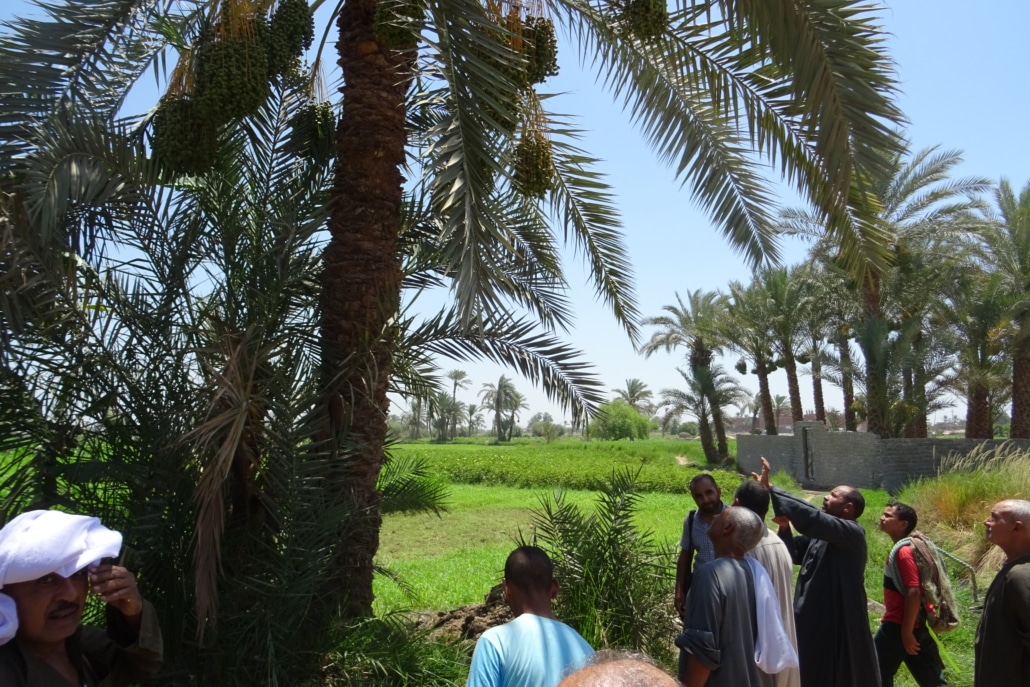In the village of Biyehmo, the annual production of dates is about 1,000 t divided into 3 varieties:
- 60% of Ahmat, a variety in high demand but with a very short shelf life (< 24h)
- 30% of Siwy, a variety that can be kept for a week outside and months in the refrigerator. Their value can double during the month of Ramadan
- 10% of Balady, a wild variety that is difficult to market
Farmers sell their dates individually to middlemen. In a context of increasing demand for good quality dates, they had the intuition to organize themselves and improve their income by:
- grouping their production and bypassing a link in the distribution chain
- sharing storage means to sell production during Ramadan
- creating new outlets for the sale of products derived from palm components
The Biyehmo association, accompanied by Fert and NSCE, requested a specific study to identify various opportunities to improve the income from date production and to assess their feasibility at the association level. The restitution workshop of the study organized at the end of 2019, was an opportunity to compare the work carried out by the consultants with the expectations of farmers and the leaders of the association.
Main findings and perspectives of farmers
Collectively marketing the production of association members is complex because:
- the implementation of high-quality control and sorting processes in order to sell at the right price and limit losses is difficult to organize internally
- many farmers are not ready to receive deferred payments
Making sustainable a refrigerator at the level of the association is unrealistic because:
- the operating costs are too high (maintenance, electricity, salaries, …)
- the optimization of the space of the cold room requires an important rotation of the stock of dates, which is difficult to combine with the objective of the majority of farmers to sell during Ramadan
Given these constraints, the leaders of Biyehmo, together with Fert and NSCE, are thinking about other options in the short and medium term:
- better sanitary protection of the palm trees, by intensifying the fight against the red weevil, thanks in particular to the acquisition of a second endotherapy equipment.
- better post-harvest management of dates, by training farmers on the storage of the Siwy variety, including the use of quality baskets and appropriate buildings to limit losses
- the development of the marketing of derivative products, traditionally produced by women. The promotion of these products in fairs and tourist places could lead to orders that the association could respond to.





